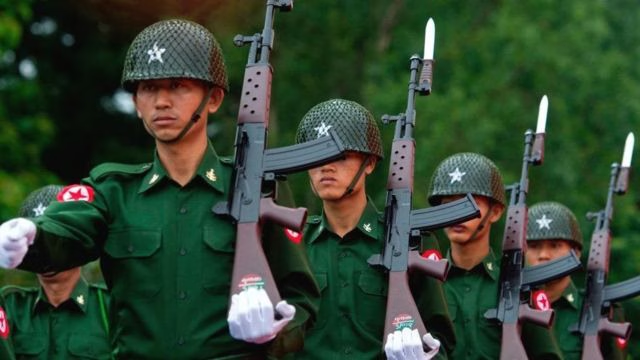Is 2021 the Year of the Coup?
Just two months into 2021, the world is witnessing a deeply troubling trend: an increased number of coup d’états that aim to reject the results of democratic elections. In the last four weeks alone, coups or attempted coups have destabilized governments in Myanmar, Armenia, and Haiti. A month before, a violent mob staged an attempted coup in the United States, directed at preventing the certification of a duly elected leader.
Each of these attacks on democratic governance was unique in its own way. Some were violent; some were not. Some attempted to oust a current leader, some were led by current leaders themselves.
This notable diversity of circumstances leads to an important question: What is a coup, anyway?
1. What is a coup and do these examples actually qualify?
A coup d’état (French for a “blow of the state”) is a “sudden and irregular removal, or displacement, of the executive authority of an independent government.” The Cline Center for Democracyrecognizes at least 9 categories of coups. Some of the most common kinds are military coups, dissident coups, foreign-backed coups, and auto-coups.
- Military coup: a coup led by members of the armed forces who are not a formal part of the government.
- Dissident coup: a coup initiated by a group of citizens not currently serving in government.
- Foreign-backed coup: a coup in which a foreign power attemps to remove a leader and install a government more sympathetic to its interests, often collaborating with domestic actors.
- Auto-coup: a coup where the acting chief executive assumes illegal powers or takes extreme measures to eliminate or render powerless other branches of the governmend, including the legislature and judiciary.
The events in Myanmar would be considered a successful military coup, as Myanmar’s military violently ousted the president, taking control of the government and instituting martial law.
In Armenia, top military officials publicly claimed that the Prime Minister was not fit for office, calling on him to resign. The Prime Minister initially described this event as an “attempted military coup.” Foreign influences were also likely involved, judging from reports that a top Russian General encouraged Armenian military leaders to unseat the president, who has long been at odds with Putin. Ultimately, the military’s efforts failed; the PM remains in power.
In contrast to Armenia and Myanmar, the events in Haiti may fit the definition of an “auto-coup,” although it’s complicated. The current president, Jovenel Moïse, refused to step down last month, claiming his term had not expired. The United States supports his legal argument; Haiti’s Judiciary disagrees. Recent days have seen further tumult in Haiti, as Moïse has arrested opposition members he claims are trying to obtain power through a coup of their own. Importantly, in the last year, Moïse has ruled by decree, ousting three Supreme Court judges and suspending two-thirds of the Senate, the entire lower Chamber and every mayor in Haiti, leaving only 11 elected representatives in a nation of more than 11 million people.
Finally, in the United States, the Cline center has classified the attack on the capitol as an attempted “dissident coup,” led by a group of discontented citizens attempting to use mob violence to overturn the results of an election. The events of January 6th could also potentially be classified as an “autocoup,” since President Trump encouraged the mob immediately prior to the attack on the legislature.
2. Why have there been so many coups this year?
In the 2010’s, the world saw an average of 2.7 coups a year. Despite having ten months to go, 2021 has already passed that marker. It is impossible to predict the course of the coming months; perhaps the number of coups will level off, and the start of the year will prove a random aberration. Nonetheless, pro-democracy groups and democratic governments should remain wary.
This year represents a particularly vulnerable time for democratic governance. A global pandemic has destabilized governments and economies around the world, providing cover for strongmen seeking to gain power. As the United States largely abdicated its leadership on the world stage, two growing superpowers–China and Russia–have increasingly attempted to influence world events in their favor.
The good news is that the world remains a much more stable place than it was decades ago. In the 1960’s, there was an average of 12 coups a year. In 2018, there were none at all.
We should recognize how far we’ve come, while remaining vigilant against the threat of democratic erosion. In an era when many see coups as a relic of the past, this winter has shown that such attacks remain a threat to democratic governance into the present and the future.


